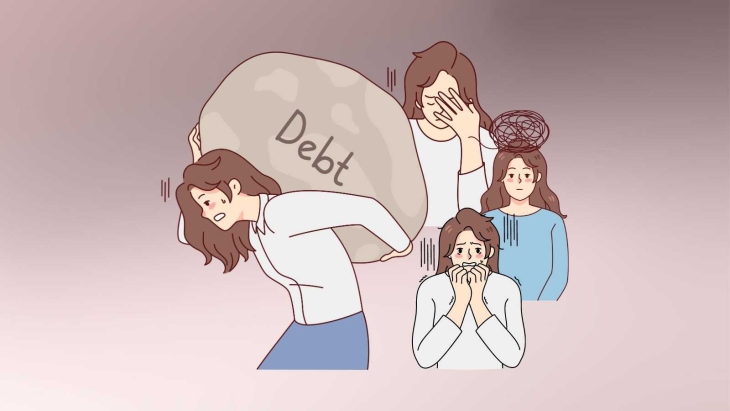Recent Posts
- Am I too sensitive to noise? It drives me crazy! The psychological effects of noise on mental health
- What are the signs that I am avoiding grief? How avoiding processing loss impacts mental health
- My son's disruptive behavior is affecting his life. How can I help him improve?
- I want to be ready for motherhood: Exploring pre- and postnatal mental health issues
- Effects of positivity on job search motivation. How do I stay confident when my job search gets tough?
Most Popular
Are there good and bad debts? And how does debt impact mental health?

How are our finances and our mental health linked? In several research studies on the factors that negatively influence our mental wellbeing, it seems that money problems including debts are some of them.
Surveys out of England say that almost half of those who have problems with debts also experience mental health problems.
In addition, another survey said that 8 out of 10 people said their mental health struggles led to the worsening of their money problems.
In fact, the Money and Mental Health Policy Institute proposed a cycle that these people experience.
- Mental health problems happen.
- The person struggling with mental health problems find it more difficult to manage their money including difficulty in earning money, allocating it, spending it, and knowing how to ask for help.
- This leads to money problems.
- Their money problems make their stress and anxiety worse.
- Heightened stress and anxiety leads to more mental health problems.
And the cycle continues.
Understanding debts
What do we think are the factors that lead a person to be in debt? Commonly, we think of their misuse of credit cards to support a lavish life. But there are other reasons too, like unemployment and mental health issues that make debt management difficult.
Debt can have negative consequences to your mental health when:
- You feel worried when you think about debt payments you have to make;
- You feel constantly harassed by struggling to meet payment dues, and sometimes missing paying your bills, cards, and other utilities;
- You receive letters from creditors and you feel the need to ignore them;
- You feel anxious every time you receive calls from unknown callers, thinking that they might be creditors, and
- You feel that it is impossible for you to create a savings fund for future use like in emergencies.
If you are experiencing any of these things, then you might consider seeking professional help. Seek financial advice from experts who will not judge you about your situation and help you set up a system for you to manage your debts.
In addition, your debt problem may bring about a mental health struggle. So if you are experiencing persistent unpleasant thoughts, or symptoms of anxiety or depression, consider getting mental health services.
Takeaway on debt and mental health
As the cost of food, housing, medical care, and insurance is continuously rising, we need to get a grip on our finances. This includes learning proper and responsible ways to use our credit cards to avoid falling into the debt trap.
According to research, the declining mental health status in the US is also contributing to the worsening debt crisis. As people experience low-self esteem, and cognitive functioning continues to decline, decision-making about finances also declines.
But remember that all of us struggle with money problems at one point or another. We experience job loss, accidents, failed relationships, and become sick. Our finances and mental health are so closely linked that in order to cope, we must be intentional in managing our finances, and our financial stress.
Learn all you can about finances and healthy coping skills, or ask for help. When one area is healthy, the other also is relieved from burden, leaving you with more opportunities to enjoy your money and your wellbeing.
Find your next career in healthcare! Browse through high quality job postings for mental health professionals that are tailored to your skills and qualifications!








Comments